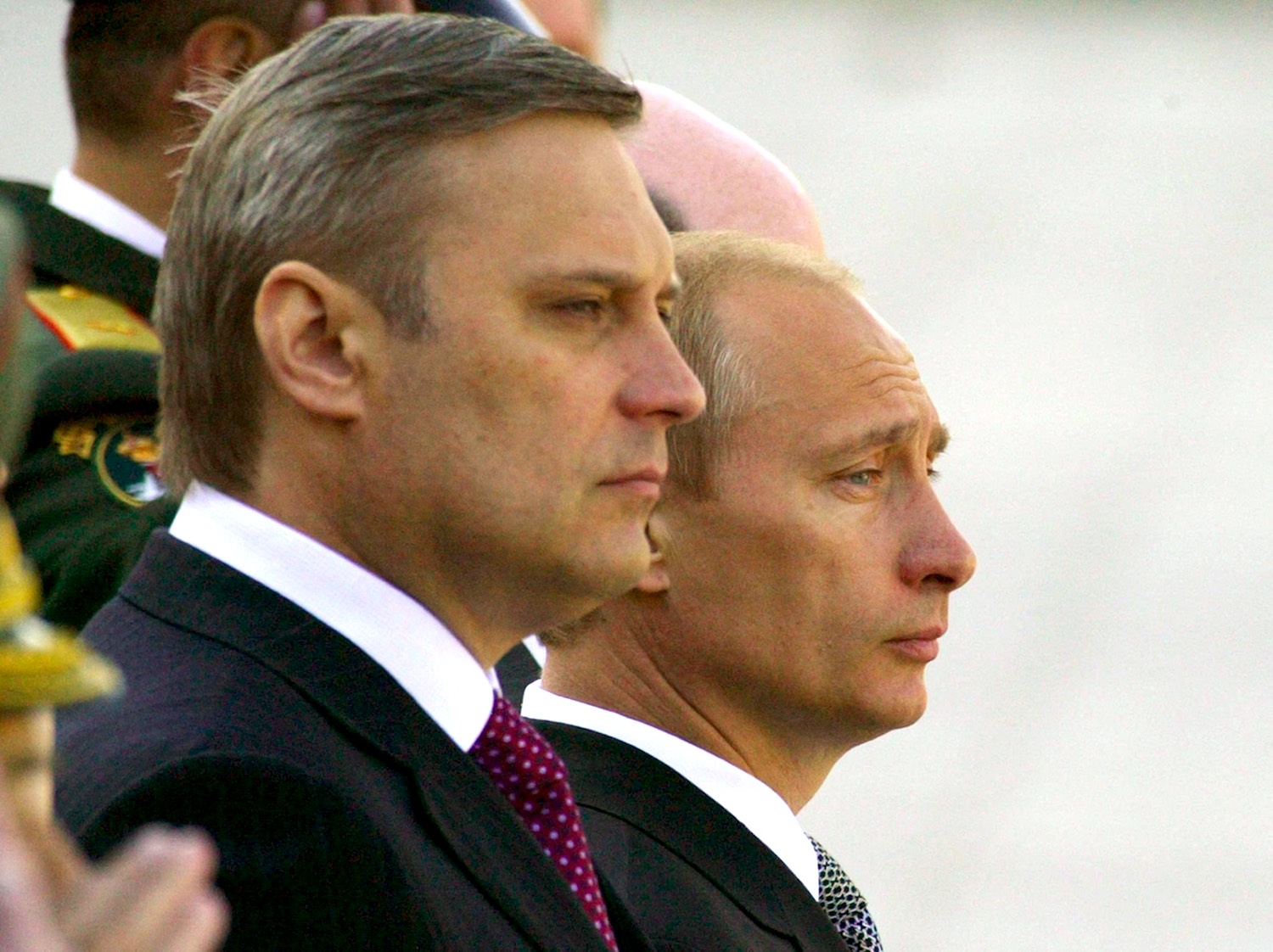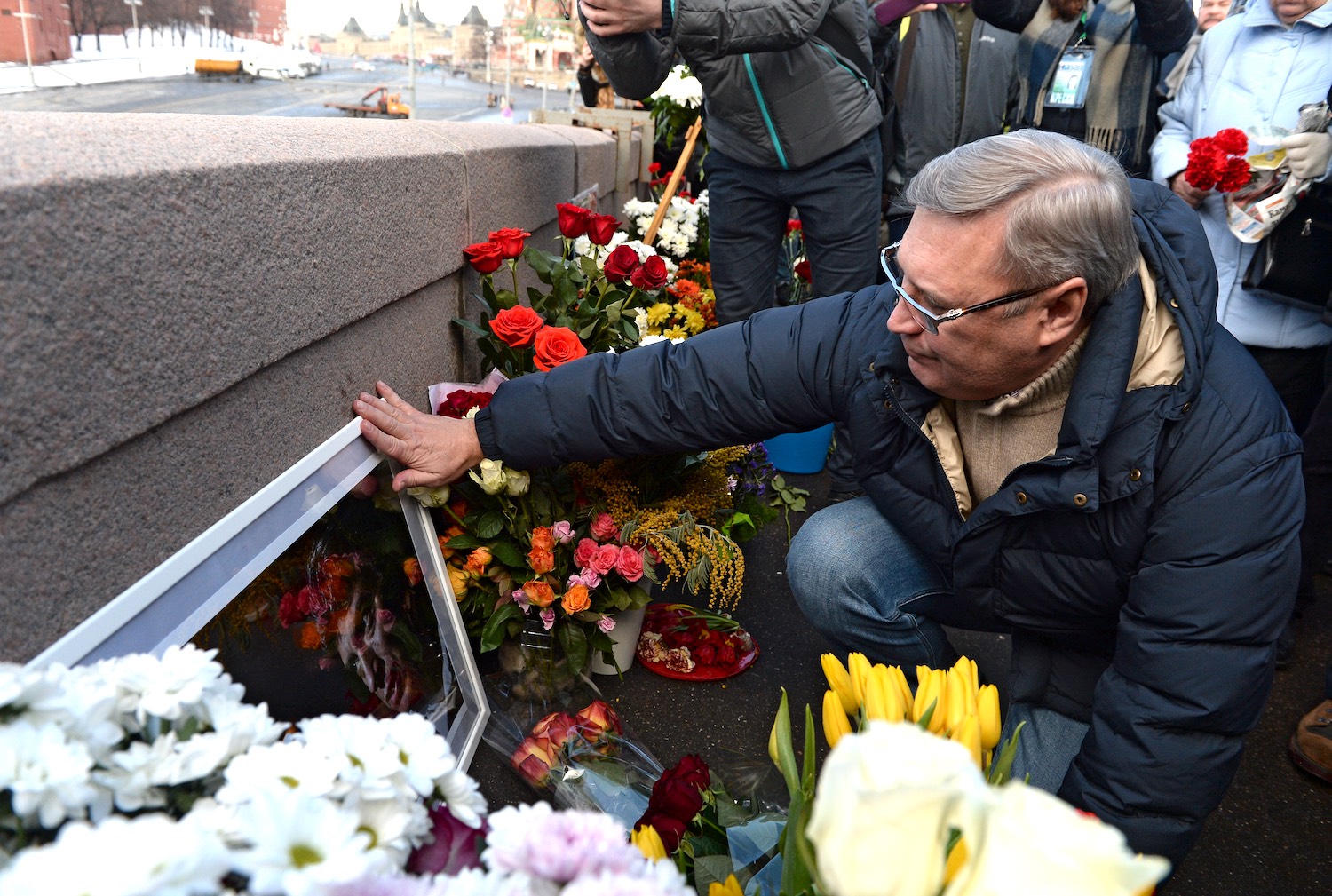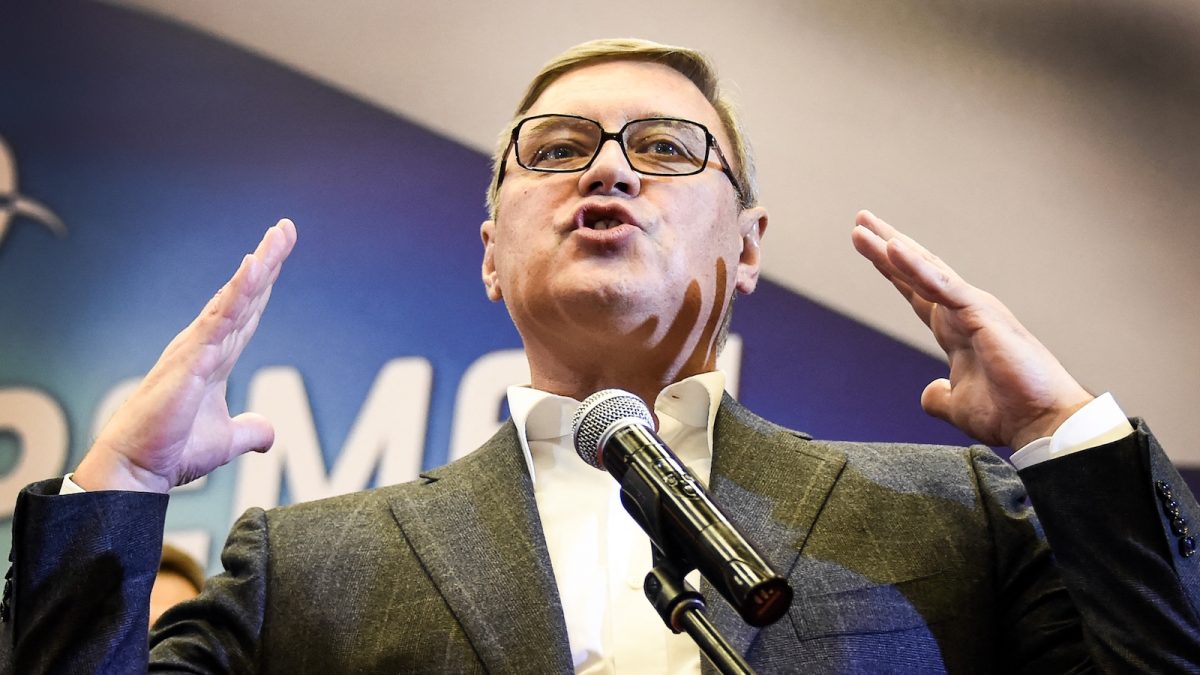Putin needs people like Orbán – an exclusive interview with Mikhail Kasyanov
Between 2000 and 2004, he was the Prime Minister of Vladimir Putin, just as, after the turbulent Yeltsin era, the West was chanting odes to the Russian president. What broke the sympathy and what led to the breakup of Russia’s two top leaders? Apart from his working relationship with Mr. Putin, Válasz Online asks Mikhail Kasyanov, who has been a harsh critic of his former boss since 2005, about the prospects of the opposition after the imprisonment of Alexei Navalny and about the Hungarian-Russian friendship blossoming since 2010. Moreover: as a Russian liberal, would he hand back Crimea to Ukraine? An exclusive interview with the chairman of the late Boris Nemstov’s People’s Freedom Party (PARNAS).
Are you jealous of Mr. Navalny?
It is not the right expression at all. We very much appreciate Mr. Navalny’s brave behavior and his return to Russia which automatically made him the leader of the opposition and the protests. The latter is absolutely crucial because no changes can happen without street protests. In this particular moment and environment he became an absolute consensual figure.
Do you also consider him as leader of the opposition? Because it means it is not you.
This is an absolutely different situation than before and we need a protest leader like Mr. Navalny who, I would like to believe, consolidated the opposition. But there are still some critical voices towards him.
Is yours one of them?
Earlier it was. Years ago, we were in the same coalition and I believe we can still work out political consensus, I see no obstacle which we cannot overcome. I do not support his idea of so-called smart voting however, because it may gravitate candidates from the Communist Party or Mr. Zhirinovsky’s Liberal Democrat Party. Politically, this is absolutely unacceptable for me, similarly to 2018 when Mr. Navalny’s team first cultivated the idea. It is a politological instrument for them but it is not politics. When Mr. Navalny’s was in Germany, we were discussing my idea of creating a coalition of democratic forces with its own list of candidates but unfortunately his team continues to believe that smart voting would be the best solution. I disagree.
Your idea had moderate success in 2016. Why would it work now?
The situation in Russia has been worsening and people more badly need some kind of alternative. Our coalition could provide it – even if we would not get majority, we would represent a considerable part of society. If one follows the comments in social media, the experience is that people are even angry to us because of the inability of creating a united opposition.
Even if you manage to create it, do you think the authorities will let you register for the legislative elections in September?
This is the exact reason why we need the street protests – and important duty for Mr. Navalny’s team to perform. We need the protesters’ demand to register our united opposition candidates and save the votes from election fraud. Without it, this will be again just a nomination, not registration – and zero result. During the regional elections in 2018, my party, PARNAS, was registered but two days before the elections the Supreme Court has denied our participation.
Mr. Navalny will soon end up in a penitentiary facility in one of Russia’s remote regions. Who should lead the opposition then?
In spite of the fact that politics in Russia is quite personalized, it is not yet necessary to determinate the person. Currently the most important task is to combine the 3-4 democratic political groups in Russia to demonstrate unity for the people.
Do you have any ambition to lead the opposition?
Right now it is not a crucial issue for me. I am prepared to implement any role a united opposition would determine for me. I have no ambition to lead as I had 13 years ago when I wanted to participate in the presidential election. Things have changed since, young politicians have already grown up. My responsibility is to support them and the unity of opposition with my experience and influence as well as to provide their participation in the parliamentary election.
Polls about the January protests suggested that it was the first demonstration for 40 per cent of the participants, consequently it was not only the usual urban intelligentsia that got out to the streets. How can you channel their frustration?
That is right, many protesters have no idea about how Russian politics was 15-20 years ago and their lack of prospect is not understood by Mr. Putin. These people are just demanding their future and they should be lead be young people who speak their language. That is why we need a coalition which represents Russia as a normal European country and not something obscure like the Soviet Union was.
Do you consider yourself as liberal?
In Russia, every democrat is considered as liberal to which authorities have created a negative connotation – in their eye it means “foreign spy manipulated by the Americans or Europeans”.
As a Russian democrat then, would you hand back Crimea to Ukraine?
The 2020 amendments to the Constitution of Russia prevent people even to talk about that. In 2015, I said “all decisions on Crimea are illegal” – I haven’t changed my opinion.
What was it like to be in a working relationship with Mr. Putin?
Although I was Russia’s number 2, I was not the president’s subordinate because the structure of power was in accordance with the constitution which suggests the executive power belongs to the government. The president is not the chief of the executive power – today Putin is the chief of everything. During my time I was the chief of the executive power and I implemented this with the reforms we have carried out – with the general support of Putin as a political leader. After my departure there was not a single prime minister who initiated reforms of his own volition.

What went wrong between the two of you?
Disagreements on policies especially vis-a-vis Belarus and Ukraine and internal affairs such as the reform of the gas sector the president opposed. He wanted Gazprom to remain intact and objected the abolishment of its monopoly which could have lead to a free market in the gas sector. In the background, Yukos case was already unfolding and I have publicly criticized the Prosecutor General’s office which Putin disliked. All in all, we had different views on principal political issues.
Mr. Putin, for instance, does not consider the former Soviet republics – Belarus, Ukraine, Georgia, Moldova – as sovereign countries
and criticized my equal-partner relationship towards them. I have also launched a pension reform which would have allowed people to accumulate their own savings but he rather wanted to hand feed people, like in Soviet times when everybody was dependent on the state.
But if one observes his election results and approval ratings, he was the one who was right, wasn’t he?
I disagree with those figures. I confirm he has the majority but I think the only election he really won was the presidential in 2000 – ever since, every election was at least falsified. He never behaved as a politician rather the administrator of the structures. By now, it is not only in Moscow and St. Petersburg but also in other cities where his approval is below 50 per cent – and that could worry him and his inner circle. This is inevitable when one does not allow any alternative to gain ground while the state television propaganda keeps repeating that without Putin, Russia would be deprived of her sovereignty and those ugly Americans would take our oil and gas. Therefore people, who otherwise would not support him, are asking “who is instead?”. But even Putin has no answer as he does not have a successor.
The 2003 Rose Revolution in the aforementioned Georgia happened during your tenure as prime minister. Would you say it was the first cause of Putin’s paranoia about the West which was applauding him during the years before?
Absolutely. The changes in Georgia and in Ukraine made him fear of people as they were able to topple the authorities. It was also reminiscent of the fall of the Soviet Union which was, in general, also a consequence of people’s pressure without any enforcement. Putin considered the Georgian and Ukrainian events as dangerous developments and, having mentioned our disagreements during my final years in office, I started to realize that he only pretended to be a democrat.
Nowadays he is the real Putin – a KGB officer who is running the country without political opponents and who only issues orders then demands their implementation.
Do you think that he already planned his return as president when he handed over the office to Mr. Medvedev in 2008?
I am sure about that. That is why I have run for office then as a real alternative, enjoying the support of business circles, but living standards were booming in the previous years and people did not want to fight for their constitutional rights.
You have been applauding your own merits but do you remember what did he say about you during his annual press conference in 2011?
“He did not work”? Something like that.
“In his first one year and a half, he was trying to do something but during the next two years his activity was zero”. He also mentioned your infamous nickname “Misha 2 per cent”.
He was wrong. Each and every reform of mine had to be explained to people on television then had to be adopted by the Parliament where I spent months to convince the deputies about the necessity of changes – the State Duma was also different then. Putin was just manipulating with the phrase you have quoted.
Why was he mocking you?
He did not want me to go to opposition but wanted to keep me somewhere on his orbit.
Why did you refuse? You have said, he offered you to take the post of secretary of the Security Council three times. Perhaps you would still have some influence.
I have already understood we had completely different vision on many political aspects. I did not want to be in the same government with Putin who, weeks prior the 2004 presidential election, dissolved my cabinet just because he read reports that the election would turn in an unexpected direction and, as second man in the country, I could have ended up as acting president.

It sounds that until your 2004 replacement everything was in order but till you returned as an opposition figure in 2005, everything went wrong. One year is a bit short for a U-turn of this magnitude in a country like Russia.
I neither said it began in 2004 nor that it was sudden. In fact, nothing special happened in 2004 until the Beslan tragedy. Mr. Putin used it cynically as a reason to squeeze the political environment. This has changed my general attitude. The demonstrative 2004 redistribution of Yukos, a company once worth $50bn, and the conviction of Mr. Khodorkovsky in 2005 were also a negative developments and warning signals people rather ignored. It was a clear transformation of Putin in a short period of time and it is irrelevant whether I was inside or outside the circle.
Are you still in contact with Mr. Khodorkovsky? You have mentioned Yukos several times and you were on his alternative presidential candidate list set for the 2018 election.
We meet from time to time.
Could you explain the rosy relationship between Hungary and Russia? How does it look like from Moscow?
Mr. Putin’s policy is to divide the EU and disable it from working out a general foreign and security policy.
Your prime minister is one of those leaders who are creating problems for the EU to come up to consensus.
The Russian president is trying to buy their loyalty not to have a consensual decision vis-a-vis his misdeeds – violation of human rights or international law and other aspects. Mr. Putin does not care whether those leaders are far-right or extreme left until they create problems for the EU. This is required be in friendship with Mr. Putin.
Is Hungary Russia’s useful idiot in the EU?
I would not say that. Putin does not care if it is Hungary, Greece, Italy or the Czech president. It always depends on the situation and it does not mean political orientation but rather the ability of troublemaking. Putin plays game with those leaders to prevent any consensual – and fast – decision on Russia. Having grown up in the USSR, Putin wants the re-establish the pre-1990 world order when the whole globe was watching the competition between Washington and Moscow. He uses anyone who helps his ambition but he is afraid of transatlantic unity and will use every capacity of his to destroy it.
Cover picture: Russian opposition leader Mikhail Kasyanov, former Russian prime minister, addresses the audience during a forum of the Democratic Coalition in Moscow on December 11, 2015. Photo by Alexander Nemenov/AFP







